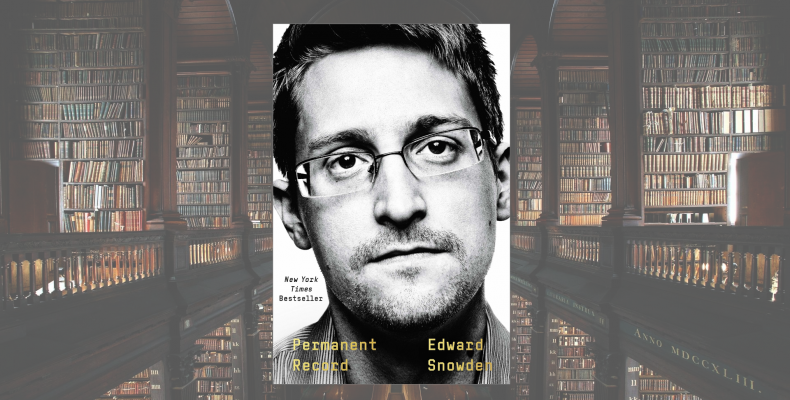This one is my favourite book!
A previous note for the fact I’ve read the Portuguese version of the book, which title is “Massive Vigilance, Permanent Record” and all the citations I’ll make will result of personal translations.
This one was special, because it involved much more than a simple book. It all started in 2016, when I saw the premiere of the movie Snowden. Rated as a 7.3 movie on IMDB, I must say that quickly turned into my favourite movie, not just in terms of cinematography, but also in terms of the story it told. In fact, after reading the book and searching for more information, I’ve realized the movie, in terms of content, it’s not that good. Quoting from the book:
«Just knowing that there is, or may be, someone pushing the Record button of their smartphone and pointing it at us is enough to embarrass you, even if that person is a friend. While most of my interactions today happen via a video camera, I’m still not sure which of the experiences seems most alienating to me: seeing myself on film or being filmed. I try to avoid the first but avoiding the second has become difficult for everyone.»
So, since then, I started following the life of this whistle-blower through news, articles and that kind of stuff.
When I knew that it would be released a book, a biography written by the person whose life story was about, Edward Snowden, I almost celebrated it as it was a personal achieve. Then, when the book was released, I was one of the firsts to buy it.
During 3 weeks, all I did during my free time was to read this book. I then watched the documentary Citizenfour, rated on IMDB with 8.0, in which the three journalists from The Guardian responsible for the revelation of the documents are filmed (it was in fact filmed by Laura Poitras, one of the journalists. The other two were Glenn Greenwald and Ewen Macaskill). Also, in the masterpiece that this documentary is, persons like Julian Assange (Wikileaks founder) and William Binney (ex-NSA employee) are interviewed. Then, I’ve also viewed the short-film Verax, which I didn’t like, to be honest, and some YouTube videos, like the first recorded video from Edward Snowden, known for it’s famous start: «Hum, my name is Edward Snowden. I’m, hum, 29 years old.». I’ve also watched the video where Glenn Greenwald gives us an inside story of what happened and two more interviews, two on video and one for El País, a Spanish journal.
Back into the book, it starts perfectly: «My name is Edward Joseph Snowden. I used to work for the government, but now I work for the public.». The first chapters were special because I’ve viewed myself in some of the descriptions. From that chapters on, the rhythm of the book increased a little bit from a chapter to the next. The trilling descriptions on the last ones were just like a written movie. I risk to say that it challenges the ones who say that a picture worth more than 1000 words.
The two parts that I’ve enjoyed more on the book, one because made me laugh and the other one because reflects the way I see technology purposes, were:
«In short, we were trapped at the airport for a biblical forty days and forty nights. In the course of those days, I applied for political asylum to a total of twenty-seven countries. None was available to face pressure from the United States. Some refused outright, others replied that they could not consider the request until I reached their territories – a feat that was impossible. At the end, the only head of state who was sympathetic to my cause was Burguer King, who never denied me a Whopper (without tomato and onion).»
«In a perfect world, that is, in a world that does not exist, just laws would make these tools obsolete. But in the only world we have, they are increasingly necessary. Changing the law is far more difficult to achieve than changing a pattern, and as long as innovation continues to lag behind technological innovation, institutions will seek to exploit this disparity to further their interests. It is up to independent creators of hardware and open-source software to bridge this gap by providing the crucial civil liberties protections that the law may perhaps cannot, or will not, guarantee.»
It should be mandatory to read it everywhere. Its success is proved by being the most sold book in the world at the moment of its publication. The only thing I didn’t like in the book is the fact of having just 400 pages.
To finish, I must wish all the best and thank the journalist who made this possible. Of course, as it couldn’t be otherwise, all this is a result of the incredible legacy of Edward Snowden, a man that became one of my idols.
What’s next? Well, there’s already one book in my Wishlist written by one of that journalists I’ve talked, Glenn Greenwald, which title is No Place to Hide. And there’s also a TV show, Digits, rated with 7.9 on IMDB.
Rating 5.0/5
Read in 2019
